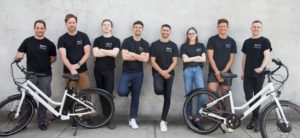In a recent interview with USTechTimes, Vivek Anand, Director of Data Science at a Fortune 500 retailer, shared valuable insights on the evolving landscape of AI and Data Science, the rise of AI applications, and the challenges faced by startups looking to achieve global expansion.
With over 15 years of experience in the field, Anand’s journey from Wall Street to retail offers a unique perspective on the intersection of technology and business.
Vivek Anand highlighted the significant changes in the AI and Data Science industry over the past decade. He noted that while many AI algorithms have existed since the 1960s and 70s, the recent explosion in AI applications is primarily due to advancements in computing power.
“You have compute, scalable data centers, you can process more data, you can train your model on bigger data sets in a reasonable amount of time, and that’s essentially driving it,” said Anand.
Another crucial factor that he attributed to the current AI boom is the increased openness and adoption of AI technologies across industries. Anand recalled that many potential clients viewed AI solutions a decade ago with suspicion. However, AI has become a sought-after feature in various products and services.
Challenges and Opportunities for Startups
Speaking about startups looking to enter the US market or achieve global expansion, Anand emphasized the importance of solving real problems rather than executing ideas. “Startups that become successful are trying to solve a problem,” he stated. “They are not an idea getting executed.”
Anand advises entrepreneurs to focus on understanding local market needs, regulatory frameworks, and cultural contexts when expanding into new territories. He cited examples of successful companies like Uber, which adapts its interface and features to meet specific regional requirements.
Anand emphasized the importance of understanding local market nuances and regulatory frameworks when expanding globally. He used Uber as an example, highlighting how the company adapted its app interface in India to prevent drivers from fraudulently starting trips early.
Anand also discussed how regulatory changes in certain US states have led Uber to exit those markets. He stressed that startups must solve problems and ensure their business models fit within local regulatory environments.
Anand cautioned against directly transplanting successful models from one region to another without adaptation, citing an e-commerce company that struggled to apply its Southeast Asian forecasting model to the US market due to differing market drivers. This underscores the need for startups to tailor their approaches to local conditions when expanding internationally.
One key strategy Anand recommended for startups is to form partnerships with established companies. He shared his experience of partnering with consulting firms like Accenture and Deloitte to gain initial traction in the market. “Unless you find that first customer, your credibility is still questioned,” Vivek Anand said. Partnerships can give startups access to customers and help build credibility in new markets.
Data Science Skills and Career Advice
Advising aspiring data scientists, Anand stressed the importance of continuous learning and adaptability. “This field is moving at a breakneck pace. You have to keep learning,” he advised. He also highlighted the value of solid communication skills, emphasizing the need to present complex technical information in a way that non-technical stakeholders can understand.
Anand emphasized the importance of networking and personal connections in educating entrepreneurs about fundraising. He suggested that entrepreneurs attend industry events and conferences to showcase their products and solutions. “Unless you talk to people, understand their problems, and offer them a solution, raising money is hard,” Anand noted.
He also addressed the debate between focusing solely on product development versus networking, suggesting that both are valuable. Anand highlighted events like South by Southwest as platforms where startups can demonstrate their solutions to a captive audience and potentially attract investors or customers.
Global Expansion Strategies
Talking about opportunities for global expansion for Southeast Asian startups looking to achieve global expansion into the US market, Anand advised on the importance of having a working product before seeking international funding. He noted that opportunities for high-yield investments in Western markets are shrinking, increasing interest in developing markets.
Vivek Anand also touched on the perception of Asian startups in the US market, stating that there isn’t necessarily a bias against them. He pointed to successful examples like Postman, an Indian company widely used in API development, and the reputation of Asian tech companies in various sectors.
As the AI and Data Science landscape evolves, Anand’s insights offer valuable guidance for aspiring data scientists and entrepreneurs looking to navigate the complex world of technology and global business. His emphasis on problem-solving, continuous learning, and strategic partnerships is a roadmap for those seeking to make their mark in this rapidly changing field.
Follow USTechTimes on Facebook, Twitter and Linkedin for in-depth news of market trends, funding updates, and regulatory changes affecting startups in USA.
We Recommend:
- Lumu Technologies Secures $30 Million in Series B Funding to Transform Cybersecurity Landscape
- Stash Secures $40M Investment for Fueling Global Expansion
- Allium Secures $16.5M Series A Funding Led by Theory Ventures
- USTechTimes Global Launchpad with Vivek Anand
- Introducing USTechTimes Global Launchpad for Startups

































